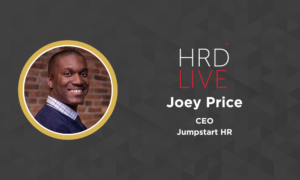Making sense of HR, leadership and management advice
- 5 Min Read
How to determine the information that matters
- Author: Dave Ulrich
- Date published: Feb 22, 2021
- Categories

If you’re like me, you’re getting inundated with posts, invitations, surveys, research reports, articles, and insights (including this post) about how to respond to changing business conditions. These include the full spectrum of HR, leadership and management advice. In only the last six weeks, I’ve received information on topics ranging from wellbeing and mental health to organisational design, and from HR strategy to the rise of AI.
For many, there is a fatigue with an overload of all these good ideas. While it is helpful to curate them (see David Green or The People Space’s monthly posts), the deluge of HR, leadership and management insights can be overwhelming. On the one hand, it is tempting to ignore all the advice and just get on with whatever works – which is a bit like not dieting because there are so many diets. On the other hand, it is probably even more dysfunctional to chase fads and seek silver bullets which lead to vicious cycles of hope and despair (yo-yo dieting).
Good business and HR leaders want to become better. So, how can you separate signals that matter from noise that abounds? Let me offer six tips to filter good ideas to rely on those ideas that might be most useful to you.
Ensure relevance
Many of the suggestions are about activities (e.g. use this digital platform, express appreciation) rather than results of the activities. To filter which ideas work best for you, do not start with activities you do, but about results you care about. This means moving from benchmarking and best practices descriptions of what could be done to prescription and guidance about what should be done.
It is helpful for you (with your advisor) to be clear about the results your organisation cares about which might include: employees (wellbeing, productivity), business strategy (digital reinvention), customer (net promotor score, revenue per customer), investor (profitability, market value), and community (reputation). With results in mind, suggestions can be pursued so that the desired outcomes happen. Ask yourself or your advisor: How will this suggestion help me reach the results I care about?
Build on existing knowledge
Most, if not all, ‘new’ activities build on and evolve previous work. For example, employee experience is an extension of decades of work on individual satisfaction, motivation, commitment, and engagement. While the challenges of 2020 were intense, many existed before: employees have worked remotely, organisations have had to become more agile, and leaders have been encouraged to become meaning-makers for decades.
Acknowledging and building on previous work avoids repackaging old ideas without moving them forward. Too often do suggestions recycle previous work without building on it. Spiralling forward to the future respects the past but emphasises creating a better future. Be aware of advice that promises unique and unheard of insights or does not build on others. Ask yourself or your advisor: who else has worked on these issues and how does your work advance those ideas?
Adapt to my circumstances
Almost all innovative suggestions have worked somewhere for someone, but that doesn’t necessarily mean they will work for you. Best practice for others is not necessarily your desired practice.
To prioritise insights that have impact for you, you might explore the extent to which they will impact results you care about (see above) and are implementable within your organisation. Recommendations should be adapted to your setting, not adopted. Effective advisors start with questions to find out about your unique circumstances before giving answers. Ask: How curious is my advisor about my unique circumstance and willing to adapt their ideas to help me?
Keep it simple
The world is increasingly complex, but reacting with complexity does not facilitate progress as much as determining simple priorities. Successful changes will generally be small and simple nudges rather than dramatic metamorphoses. It’s better to make and keep simple promises than to make bold assertions.
Simple is not simplistic, and requires rigor in finding patterns, taking first steps, and learning from results. Responding to complexity with simplicity is more demanding that matching complexity with complexity. Ask yourself and your advisor: What are simple first steps to make progress?
Partner to discover solutions
Partnering means that the advisor wants you to be an independent – not dependent – thinker. Over time, the suggestions you adapt become yours with your mental maps (language, frameworks, logic) and fingerprints (actions, investments).
You should discover unique approaches to employee experience, organisational transformation, or digital investments. Good advisors work to empower you to create your own solutions. You lease to own their knowledge rather than rent it. Ask yourself: How well does my advisor encourage me to have my point of view that works for me?
Take care of yourself
Your personal wellbeing allows you to have the emotional energy to seek and screen new ideas. Seeking ideas, or seeing around corners, comes from being curious, connecting with others to source innovative ideas, and studying widely for new insights. Screening ideas means forcing yourself to navigate paradox, taking time to prioritise, and stopping doing things that don’t add value. Ask: How am I keeping up my emotional energy?
Good ideas proliferate and are increasingly accessible. Impactful ideas require filtering that leads to success. How do you know where to turn for ideas with impact?









